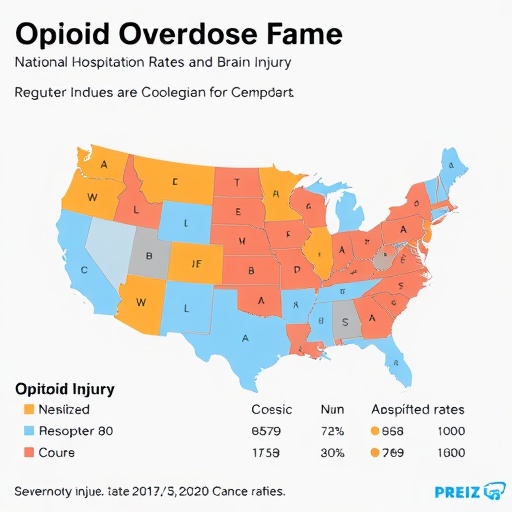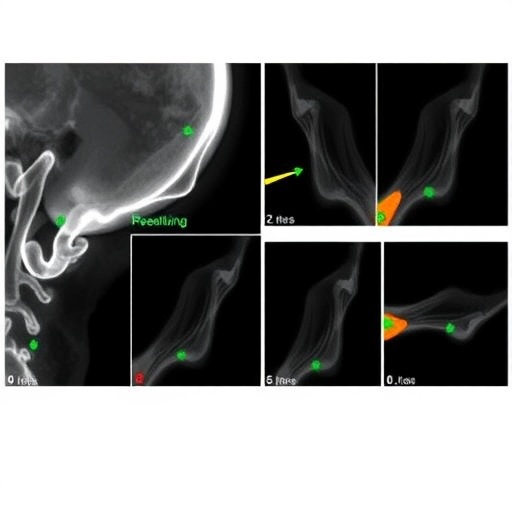PROTECT YOUR DNA WITH QUANTUM TECHNOLOGY
Orgo-Life the new way to the future Advertising by Adpathway
In an era where health policy decisions critically shape the landscape of global healthcare, the advent of web-based models represents a pioneering shift in the methodologies employed to inform these policies. A groundbreaking scoping review conducted by Rae, J.D., Chen, W., and Diarra, S., explores the intricacies and efficiencies associated with web-based models. This review encapsulates a myriad of studies that not only highlight the growing reliance on technology in healthcare policymaking but also underline the efficacy of these digital models in a post-pandemic world.
The scoping review meticulously catalogs the evolution of web-based strategies utilized in health policy, providing a comprehensive overview of their applications and effectiveness. Utilizing advanced algorithms and user-friendly interfaces, these platforms enable policymakers to simulate various health scenarios and outcomes, vastly improving the data-driven decision-making process. By digitizing information, these models open up new avenues for engagement, facilitating a participatory approach among stakeholders in the health sector.
One of the central themes emerging from the review is the versatile nature of web-based models. Unlike traditional methods that may rely heavily on static datasets, web-based models allow for dynamic input of real-time data. This capability is particularly crucial in fast-evolving situations, such as infectious disease outbreaks, where timely and accurate information can drastically alter health responses. The review emphasizes how these models can capture the multifaceted interactions between various health determinants, providing a holistic view of public health scenarios.
Moreover, the integration of artificial intelligence into web-based health models is revolutionizing the accuracy of predictions and analyses. The scoping review indicates that AI-driven models outperform conventional models by a substantial margin, particularly when it comes to forecasting disease spread or evaluating potential policy impacts. By employing machine learning algorithms, these web-based platforms can adapt and learn from data inputs, refining their projections to better serve health policymakers.
Conversely, the review also addresses potential pitfalls associated with web-based health modelling. A primary concern highlighted by the authors is the issue of data quality. While web-based models can efficiently handle large data volumes, the integrity of this data remains paramount. Misleading or incomplete data can lead to skewed results, which may precipitate harmful policy decisions. Therefore, ensuring robust data governance and validation processes is critical to bolstering the credibility of web-based models.
Another noteworthy aspect discussed is the usability of web-based health models. Accessibility is vital for the successful adoption of these tools among policymakers. The review suggests that user experience plays a significant role in the effectiveness of these models. Comprehensive training programs and intuitive interfaces are imperative to ensure that policymakers can leverage these tools without feeling overwhelmed. Streamlining the interface facilitates greater engagement and allows for more informed decision-making.
The review also emphasizes the importance of stakeholder collaboration in the development of these web-based models. Engaging various stakeholders, including healthcare providers, policymakers, and community representatives, leads to more relevant and customized health policies. Collaborative development allows models to incorporate diverse perspectives and data sources, which is essential for addressing the multifaceted challenges of public health.
Furthermore, the scoping review sheds light on the potential of web-based models to democratize health policy formulation. By providing open access to these digital tools, broader participation from non-expert stakeholders can be encouraged. This inclusivity can foster innovative solutions and enhance public trust in health policy decisions. Accessibility to web-based models can empower communities to advocate for their health needs by providing them with evidence-based information.
The role of web-based models in emergency preparedness is another pivotal theme explored within the review. The COVID-19 pandemic has been a glaring example of the need for rapid, data-driven responses to public health crises. The review illustrates how web-based models can simulate various outbreak scenarios, enabling authorities to implement effective containment strategies swiftly. Such capabilities underscore the essential role of web-based modelling in enhancing resilience within healthcare systems.
Ethical considerations also occupy a significant position in the discourse on web-based health models. The review probes into the ethical implications surrounding the use of data, particularly concerning privacy and consent issues. Protecting individual data while harnessing it for public health modelling is a dichotomy that necessitates careful navigation. Establishing ethical guidelines and standards remains crucial in ensuring that the deployment of web-based models enhances public health outcomes without compromising individual rights.
The scoping review concludes with a call to action, urging further investment in the development of web-based health policy models. As digital innovation continues to advance, there is immense potential for refining these tools to better serve public health objectives. The authors advocate for interdisciplinary research that spans health, technology, and social sciences to create comprehensive models capable of addressing the complex challenges faced in health policymaking.
In summary, Rae, J.D., Chen, W., and Diarra, S. present a compelling case for the integration of web-based models into the health policy landscape. The scoping review not only highlights the transformative potential of these models but also addresses the challenges that must be navigated to ensure their effectiveness and ethical deployment. As the world continues to grapple with public health challenges, embracing web-based solutions could pave the way for more informed, responsive, and inclusive health policies.
Subject of Research: Web-based models to inform health policy.
Article Title: Web-based models to inform health policy: A scoping review.
Article References:
Rae, J.D., Chen, W., Diarra, S. et al. Web-based models to inform health policy: A scoping review.
Health Res Policy Sys 23, 99 (2025). https://doi.org/10.1186/s12961-025-01367-z
Image Credits: AI Generated
DOI: 10.1186/s12961-025-01367-z
Keywords: web-based models, health policy, scoping review, public health, data governance, AI in healthcare, emergency preparedness, ethical considerations.
Tags: algorithms in health policydigital strategies in healthcaredynamic modeling for health scenarioseffectiveness of digital health modelsinnovations in health data analysisparticipatory health policy engagementpost-pandemic healthcare strategiesreal-time data in health decision-makingscoping review of health modelsstakeholder involvement in health policytechnology in healthcare policymakingweb-based health policy models


 7 hours ago
12
7 hours ago
12





















 English (US) ·
English (US) ·  French (CA) ·
French (CA) ·